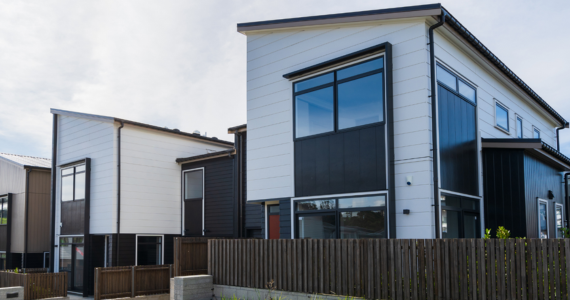There is an old saying that no investment is as safe as houses, but is that really the case? Recent interest rate rises after a long period of seemingly never-ending increases in property prices may prove otherwise.
While it’s easy to think investing in residential property is a fail-safe way to make money, there are endless traps for anyone hoping to get rich quick by buying into property. Most economists believe the price rises in Australian housing this century is due only to two factors.

The first is the deregulation of the Australian banking sector which has allowed more banks to lend more money to more Australians to buy a house.
Secondly, interest rates had been at historically low levels. These two factors combined meant that come auction day, Australians have just been able to offer more for houses that are up for sale.
However, this seemingly endless price rise has given Australians an incorrect belief that it is impossible to go wrong investing in residential property.
So, what are the key mistakes investors make when investing in property?
-
One + One = Three
The most common mistake is that potential investors simply don’t do the numbers before they buy. They assume that even if you lose money on a month-to-month basis, the eventual capital gains will easily offset this loss. Maybe that will happen, but what if it doesn’t?
How much money will you lose if the rent doesn’t cover the outgoings on the property while you own it? While it is currently possible to negatively gear your property, will this change? And how much capital growth do you need to achieve after tax to make a profit on your investment?
-
Did you ask your accountant?
It’s also imperative to get good tax advice from the outset. If you are investing in property to minimise your overall tax bill, then it’s important you have a tax agent walk you through the key numbers.
If you are aiming to minimise your tax bill, you might consider buying a new house or apartment, where you can potentially claim a raft of non-cash depreciation charges, which in turn may significantly boost your tax deductions. However, because of this, new properties often sell at artificially inflated prices relative to older, more established properties.
Buying an investment just to minimise your tax bill is also fraught with danger. What happens if you lose your job? How will you afford the property repayments?
-
Do you need that much?
It’s easy to get carried away and borrow more money than you can comfortably afford. Particularly with rising interest rates and increasing cost of living, you may find yourself in a position where you are forced to sell in a buyers’ market.
-
Interest Rates
Decades of historically low-interest rates had left many Australians with the false belief that interest rates would always stay low. As we have witnessed in recent times, interest rates can rise at any time given the economic environment. Can you cover larger repayments if rates do rise?
-
Research, Research, Research
Finally, too many would-be property investors fail to properly understand the property market or suburb they are buying into. This can lead to either paying too much for a property or spending too much money on renovations and over-capitalising.
Over-capitalising is when a property owner may spend $100,000 improving a property by undertaking renovations or landscaping only to find when it comes time to sell that they have only added $50,000 to the final price buyers are prepared to spend on a property in that area.
Since the 1990s, according to the Australian Bureau of Statistics, there have been five periods where the growth in house prices has been negative, falling by as much as 10 per cent on average compared to the previous year.
The recent sea and tree changes trend has seen some regional property jump relatively quickly. However, the push to get workers back into city offices may also negatively impact prices in these regional areas.
There is always risk involved in any investment, including in property. The best protection is to seek quality advice before buying a property and determine whether property investment is the most effective way to achieve your financial goals.
The information contained in this article is general information only. It is not intended to be a recommendation, offer, advice or invitation to purchase, sell or otherwise deal in securities or other investments. Before making any decision in respect to a financial product, you should seek advice from an appropriately qualified professional. We believe that the information contained in this document is accurate. However, we are not specifically licensed to provide tax or legal advice and any information that may relate to you should be confirmed with your tax or legal adviser.


